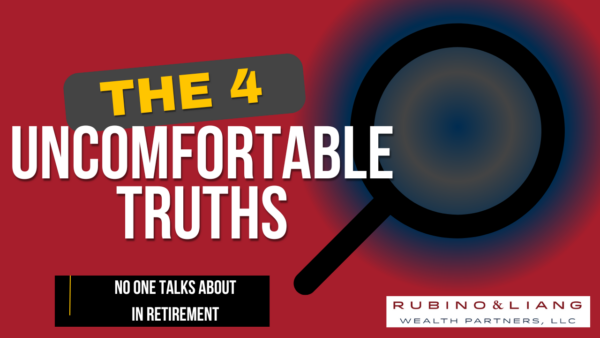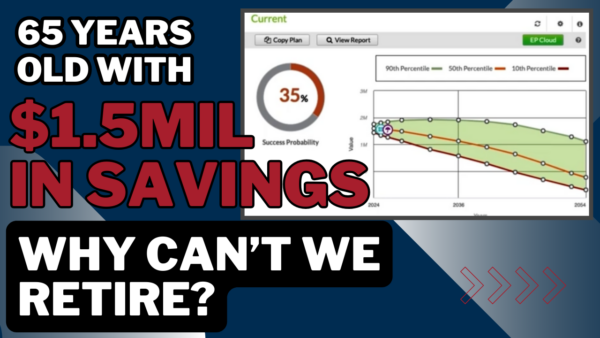Even under normal circumstances, planning for retirement can be stressful. With the chaos that a global pandemic brought into our world, we know you’re hoping for a relaxing, enjoyable life post-retirement now more than ever. And most likely you’re concerned about how these recent events will affect your retirement. But remember, it’s not just about planning to reach this milestone; you also need to plan for the years that follow. Without the security of a steady paycheck and a structured schedule, you’re embarking on a journey into the unknown of finite resources and endless free time. Will all your years of hard work pay off?
We’ve found that most retirees face the same 5 financial planning challenges during the first 10 years of retirement. If you want your golden years to be free of worry and regret, keep reading.
1. Neglecting To Create A Withdrawal Strategy
You’ve saved for years, and now you need that money to live on. How you take it out is just as important as how you put it in. That’s why you should capitalize on your wealth by determining a tax-efficient way to withdraw funds in your golden years.
While a successful retirement is earmarked by multiple income streams, be aware that different financial accounts are taxed at different rates. Traditional IRAs and 401(k)s get taxed at the ordinary income tax rate when you withdraw. Roth IRAs and Roth 401(k)s are taxed beforehand, so qualified distributions are withdrawn tax-free. Funds in a taxable investment account are taxed at the capital gains tax rate, which is different than your ordinary income tax rate.
As you can see, calculating the best time to pull from each account is enough to give anyone a headache. But the last thing you want is to get hit with a hefty tax bill. Create a withdrawal strategy with the help of a trusted professional who can make sure you’re withdrawing funds at a sustainable rate and that you’re doing it in a tax-efficient way.
We have an entire episode of our After The Paycheck series that discusses this more in depth, you can watch it by clicking here.
2. Overspending In Retirement
Many people spend their retirement years doing all the things they never got to do when they were working—starting a passion project, remodeling the house, traveling the world, and more.
It’s easy to underestimate the amount of money you’ll spend those first few years when you don’t account for all these “extras.” Overspending, even for a short period, can shave years off the longevity of your assets. The solution? Create a spending plan. Calculate your monthly income given your withdrawal strategy and then create a budget, tracking your money along the way so you stick to your goals.
3. Forgetting To Factor In Inflation
Another major challenge we see new retirees face is the desire to play it safe in the stock market. This does more harm than good as it leads to inflation risk.
The long-term average inflation rate for healthcare expenditures is 5.28%(1), compared to the current average inflation rate of 2.3% (2). What does this mean? Retirees are more likely to feel the effects of inflation due to necessary expenses, such as healthcare costs.
As tempting as it may be, resist the urge to worry about short-term stock market volatility. With a retirement that could easily last 20 to 30 years, inflation is a significant threat to your nest egg. Sit down with a trusted professional who can help you strike a balance between preservation and growth.
4. Not Having An Emergency Fund
Could you comfortably pay an unexpected, major expense in retirement without jeopardizing your financial future? For most of us, the answer is no. Just as you were taught to have an emergency fund in your formative years, it’s even more critical to have one in your retirement years.
Most professionals recommend having at least 12 to 18 months of expenses in an easily accessible savings account.(3) This may sound like a lot, but an emergency fund serves two purposes: it covers unexpected expenses and it provides stability during economic downturns. This means you can optimize your portfolio to try and beat inflation (#3 on our list) while having a safety net to fall back on.
5. Going Through Retirement Alone
After all those years of working and saving, now it’s time to pack up your office for good and see if all that hard work pays off. It took decades of strategizing to grow and protect your wealth up until reaching retirement, so don’t try to “wing it” and manage your money alone. Having a trusted financial advisor by your side can be the difference between having a retirement fund that dries up and having one you can’t outlive. Our team at Rubino & Liang Wealth Partners would be honored to walk with you on your retirement journey. Reach out to us at (617) 630-8787 or click here to request your complimentary 365 Retirement Plan consultation.
1 – https://ycharts.com/indicators/us_health_care_inflation_rate
2 – https://www.usinflationcalculator.com/inflation/current-inflation-rates/
3 – https://www.thebalance.com/how-much-emergency-savings-do-retirees-need-4582473


